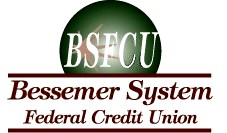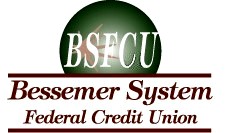Fraud Prevention
Beware Of These Common Scams
The Fraudsters Continue To Reinvent Ways To Steal Our Data. The Key Is To Stay Ahead.
At Bessemer System, providing you with trustworthy information is part of our mission. We also want to protect you and your loved ones. As you navigate your financial life, beware of these common scams.
Beware of Phishing Attempts
Never disclose personal information (including usernames, social security numbers, addresses, rite) in response to an email or phone call. One way to confirm the legitimacy of a website is by typing the URL directly into your browser rather than following a link. This enables you to go straight to the source.
Check for misspellings, questionable email addresses and bad grammar, as these often signify fraud.
Bogus Charities
The FTC advises that you do your research before making any donation to charities or crowdfunding sites claiming to assist a person in need or a cause you care about, such as the current pandemic. Don’t let anyone rush you into donating, and if someone wants donations in cash, by gift card, or by wiring money, don’t do it.
Fake Account Alerts
An individual may receive false or malicious alerts stating your credit union or other financial institution account has been “temporarily suspended,” “deactivated,” or even closed. The victim then receives a link that looks like the financial institution’s login screen, encouraging them to login with their username and password to reactivate their account. This bogus screen allows the criminal to collect the victim’s personal banking information – and use it for nefarious purposes.
REMEMBER, WE WILL NEVER SOLICIT YOU FOR THIS TYPE OF INFORMATION.
Phony Investment Opportunities
Watch for bogus online claims. Especially be careful of “publicly traded” companies claiming to prevent, detect or cure Coronavirus. The ploy is for you to “invest” in these phony companies, and the stock will dramatically increase in value. The U.S. Securities and Exchange Commission (SEC) says to use extreme caution with any offer. Other investor alerts may claim a company’s products or services can stop the Coronavirus outbreak. This is false.
These Faulty Claims Are Also Rampant On Social Media Sites. Be Wary And Don’t Click On Suspicious Links.
Secret Shopper Scams
An unsuspecting person responds to a post for a “Secret Shopper” job and receives a check via FedEx. The victim is instructed to deposit the check, purchase Apple iTunes cards, and share the numbers with the fraudsters. Once the Apple iTunes card numbers are shared, the money is no longer in the victim’s account, and the person loses out.
Senior Scams
In the “funeral” approach, scammers read obituaries and call or attend the funeral of a stranger to take advantage of the widow or widower. Claiming the deceased had an outstanding debt with them, scammers will try to extort money from relatives to settle the fake debts.
Another scam is the “Grandparent Scam.” Here, fraudsters call an older person, and when the victim answers, they will say something like: “Hi Grandma, do you know who this is?” When the unsuspecting grandparent guesses the name of the grandchild the scammer most sounds like, the scammer has established a fake identity. Once “in,” the fake grandchild will usually ask for money to solve some unexpected financial problem.
Telemarketing Scams
One example is the pigeon drop, where the con artist tells the individual that he/she has found a large sum of money and is willing to split it if the person will make a “good faith” payment by withdrawing funds from his/her bank account.
The Best Prevention Is To Stay Informed
Never accept a “check,” make a “donation,” or “share” personal information with a source you don’t know. If you believe you’ve become a victim of fraud, contact us at (724) 588-6119.
Source: http://consumeraffairs.nv.gov/Alerts/Senior/Senior_Fraud/.
Credit & Debit Card Fraud
Card fraud is a term used to describe the theft of information and funds by an unauthorized person or persons. Understanding fraud is one of the best prevention methods that you, as a member, can do to protect yourself. As our member, you have a zero dollar fraud liability, and that means you are never at fault for this. Your money will be returned to you in full, and we will issue you a brand new card once it has been determined that the card has been compromised. The moment you spot a transaction that was not made by you, give us a call so we can discuss the next steps.
Fraud Monitoring Service
Our fraud monitoring service is working around the clock to keep you protected. If you receive a call that claims to be on behalf of us from 1(800) 327-8622, feel free to discuss your transactions with them. We will NEVER ask you for any personal or card information over the phone. In turn, you should NEVER give out any personal or card-related information over the phone. Once you call in you will be asked to confirm the number that you are calling from, and the LAST 4 DIGITS of your card number, nothing more.
Lost/Stolen Card (VISA Card): (800) 325-3678
Lost/Stolen Card (MASTERCARD Card): (800) 523-4175
Reporting Fraud
If you believe that your card has been compromised, take the appropriate steps and call the corresponding number below to block your card. Call us at (724) 588-6119) to discuss your transactions and report possible fraud. For after hours and holidays use the numbers below to report fraud:
Mastercard Lost/Stolen After-Hours 1(800) 523-4175
Mastercard Fraud Monitoring 1(800) 327-8622
VISA Lost/Stolen After Hours 1(800) 325-3678
VISA Transaction Disputes 1(800) 600-5249
Phishing & Scams
Phishing is a type of scam that tries to get you to give up your personal information most commonly through email or text message. These are normal messages that appear to come from secure and credible accounts. However, there is often an element of urgency and need your personal information included. Some of these types of emails unfortunately are enabled by clicking on links contained within the email. The best way to protect yourself from a phishing scam is to never click on suspicious links, and never give personal information to anyone over email, text, or phone.
We at the Bessemer System Federal Credit Union will never email you asking for personal information, account numbers, SSN, passwords, or card numbers. Please remember that your account information is for you and your joint holder only, and sharing of that information is prohibited and puts you at risk. If you have any questions regarding the legitimacy of an email that appears to be from us, please give us a call at (724) 588-6119.
Non-Fraudulent Transactions
Fraud only encompasses illegal/stolen cards and transactions. Being double charged for a service or good is not considered fraud. However, if you feel that you were double charged, you can dispute the charge by calling 1(800) 600-5249 for VISA Credit Cards and our office at (724) 588-6119 for Mastercard Debit Cards. Lending your card to family and friends is also strictly prohibited, and if they make a charge on your account without your knowledge that is also not considered fraud. Forgotten re-occurring monthly payments processed to your card are also not fraudulent charges since they were at one point authorized by you.


